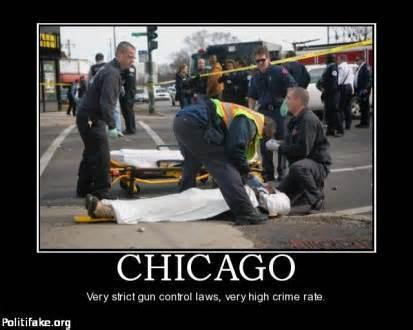
State concealed carry legislation would invalidate maligned database
Chicago Tribune: Chicago’s 3-year-old gun registry could go away as part of the concealed carry law state lawmakers recently passed, but few are publicly mourning the loss of a database once heralded as a key part of the city’s gun control laws.
The registry, put in place by then-Mayor Richard Daley after the U.S. Supreme Court tossed out Chicago’s 1982 handgun ban, required people who wanted guns in Chicago to buy city permits and register the weapons with police.
Gun rights advocates derided the registry and Chicago’s municipal permit process as ineffective in curbing gun crime and an unfair burden for law-abiding gun owners.
The numbers indicate the registry wasn’t effective. There are now about 8,650 Chicago firearms permit holders who have registered around 22,000 firearms, according to Mayor Rahm Emanuel’s office. That’s compared with the roughly 150,000 Chicago households the University of Chicago Crime Lab estimates currently have guns.
The idea was that the list would be available to police officers and firefighters so they would know if they were responding to a call for help at a home where there were firearms, Daley said at the time.
But the registry was troubled from its inception, with aldermen noting on the day they voted for it that criminals who would be a threat to emergency workers were unlikely to submit an application to police ahead of time saying they had a gun.
And four months after the city created the registry, the database still wasn’t available to the Police and Fire departments. Daley said that failure was “annoying” and that “they should have it by now.”
Now the gun registry is on the verge of going away. During negotiations in Springfield to set up rules to allow people to carry concealed weapons, gun rights advocates won a concession to scrap the Chicago registry. The bill is now awaiting action by Gov. Pat Quinn, who could veto it, sign it or write changes into the legislation.
Richard Pearson, executive director of the Illinois State Rifle Association, singled out the elimination of the Chicago registry and permit process as one of the big improvements for gun owners in the state under the bill. “That goes bye-bye, and it’s a good thing because that was a terrible law,” Pearson said. “It didn’t serve any purpose except to harass law-abiding gun owners in Chicago.”
In a city where Emanuel has pressed for tougher gun control as street violence continues, the municipal registry’s disappearance will also take away an extra set of local hoops to jump through and additional cost for people who want to legally keep handguns in Chicago.
As part of the city’s registration process, prospective gun owners had to undergo extra training and fill out an additional application for each weapon after getting a state firearm owner’s ID (FOID) card. They also had to pay $100 every three years for a municipal gun permit. Only then could they legally buy a gun and register it, at a cost of $15 per gun. No more than one gun could be registered each month.
Registration and permit rules would now fall to the state. Under the legislation, a $150 concealed weapons permit issued by the Illinois State Police to applicants 21 and older would be valid for five years. In addition, 16 hours of training would be required before getting a permit. A series of provisions were was included in an attempt to prevent people with mental health problems from getting guns.
Last year, Emanuel pushed for a statewide gun registry similar to Chicago’s, reasoning it would help Chicago police trace guns used in crimes in the city. That idea, which garnered fierce opposition from several lawmakers who said it would be ineffective, did not make it out of the General Assembly.
The Emanuel administration declined to take a position on the new state law or the loss of the registry.

“The Chicago Police Department and the City Law Department are carefully reviewing the conceal carry bill that passed the legislature on (May 31), and it would be premature for us to comment on its impact on city laws before that review is complete,” City Hall spokesman Bill McCaffrey said in an email.
Finally, some common sense may be coming to Chicago?
DCG

